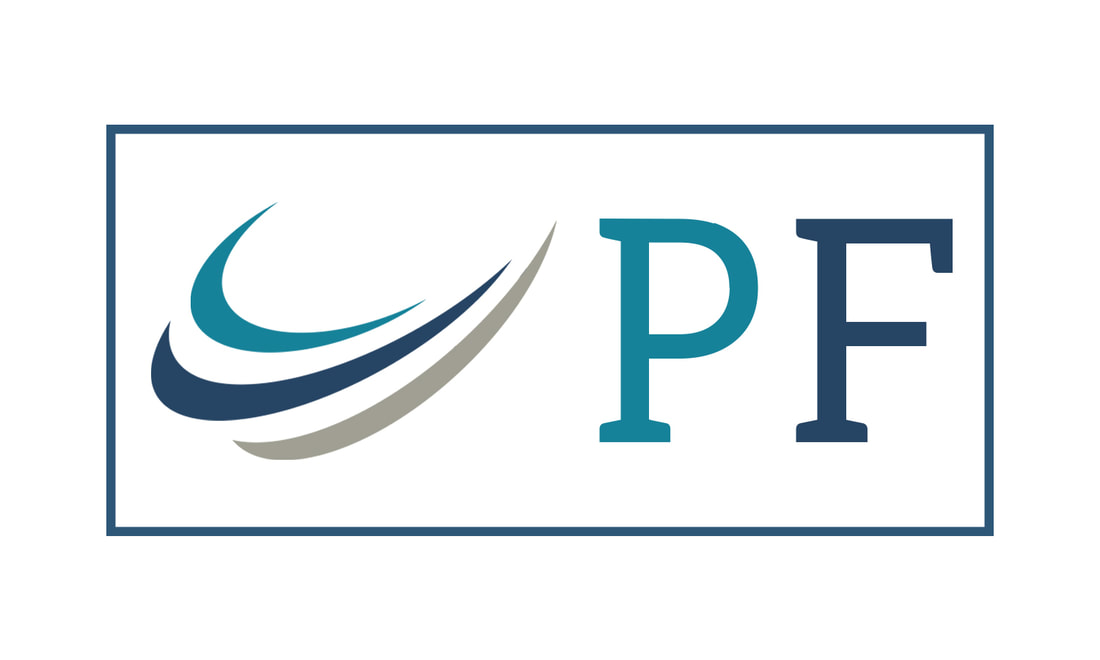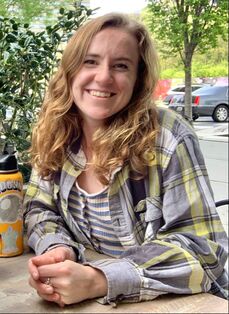 by Katie O'Malley Class of 2021 A mentor of mine always reminded me that God gives us the gift of hindsight so that we can look back at former circumstances and see grace, blessings, and growth. We are often so caught up in trying to plan for the future, that we forget to look back and reflect. This mentor urged me not to live this way; there is much gratitude to be found through counting our blessings. Since finishing the Peninsula Fellows program last May, I have moved to Washington D.C., started a role as the Conferences and Events Coordinator at the Council for Christian Colleges and Universities (CCCU), and embarked on the journey that is adulthood. The last year has been a mix of uprooting and resettling paralleled by a series of affirmations that I am on a good path. I am fortunate in that the CCCU has a Fellow from the Falls Church program, and I get to work alongside her, causing me to reflect on my own fellows year often. After a year, I have had the space to view the Peninsula Fellows program in hindsight. One thing I have determined through this reflection and discussions with my co-worker Fellow is: the fellows year is a hard year. Recent college graduates are already in a volatile stage of life which is compounded by moving to a new place, starting a new job, and living with new people. By nature, the program involves a ton of vulnerability and unfamiliarity, with a busy schedule as the icing on the cake. That being said, I do not think the fellows year is meant to be easy. I was a Division 1 sprinter in college. The way that a 200-meter dash competition works is: everyone runs as fast as they can and whoever reaches the finish line first wins. However, what I just described grossly understates the amount of practice that goes into that short race. I spent hundreds of early mornings doing the hard work of practicing block starts and running mechanics so that when I race, it would all come easily, like second nature. This is what the fellows program does. It is a hard year requiring lots of energy and focus, but the result is: the integration of faith to the rest of your life comes easily, like second nature. Essentially, the fellows year is a practice year for adulthood. Honestly, the day-to-day of adulthood is exactly what you might think: you wake up, you work for eight hours, you eat dinner, and you go to sleep. Yet God calls us to have life and have it abundantly. How do we have abundant life within the cycle of eat, sleep, work, repeat? God also reminds us that our days are numbered, our life is but a mist. Through the fellows program, I have found that life is lived in the minutes of every day. With your waking breath, God is there. With every email typed in the work day, God is there. With every load of laundry, God is there. Through the classes, intentional communication, and supportive community, the fellows year instills this thought process into its participants. It is an arduous practice year for a consistent and abundantly faithful adult life. To be clear, after completion of a fellows program the integration of faith to other realms of life is not effortless, just like running quickly still requires energy. Rather, it feels familiar, part of the routine. This is but a brief synopsis of what my hindsight has shown me about the fellows year, and truthfully, I am still processing a lot of it. However, one more thought I would like to mention is: the people running a fellows program are doing A LOT. They are in control of finding a home, finding a job, and ensuring the spiritual well-being of young adults who are in a volatile place. This is no small endeavor. I am so grateful for Mark and Lois Shaw, Becky and Chris Chappell, the Peek family, the Kuehni family, and the many others who supported and cared for me throughout all of last year. You are a gift. References 1. John 10:10 2. Psalm 90:12 3. James 4:14
0 Comments
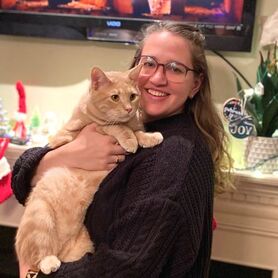 by Rachel Palekas Peninsula Fellows Class of 2020 I currently work as a nursing assistant on a mother-baby unit in a local hospital. My main “job” is being in nursing school, but the nursing assistant job I have is definitely preparing me for my future career in nursing. I graduated from Liberty University with a degree in Psychology and Biblical Studies without really being sure of what I wanted to do with it, then spent 9 months in the Peninsula Fellows program. All I knew for a long time is that I wanted to help people, but I was never sure in what context. By the grace of God and exposure to my host family (who have two nurses – shout out to the Carlsons!), I was given the courage to try something I had been scared of for a long time. I believed I wouldn’t be good enough or smart enough to go to nursing school, but the Lord did a lot of work in my heart and mind to lead me to take the leap of going into healthcare, as well as giving me the endurance to continue going to school. Working in the medical field is really interesting because it can be a misleadingly dark place - people can trust in science more than they trust in God’s sovereignty, which is a temptation for anyone, myself included. God gave us this amazing gift of our minds and modern medicine, but ultimately, we can’t solve every problem or condition. And realizing our limitedness is glorifying to the Lord. As someone who is called daily to choose to die to self, I’m called to have joy and bring life into my hospital and treat every patient with the dignity and love that they deserve as a beloved child of God, no matter the outcome. And some days a patient or a family member will get really terrible news. I can choose to turn off my emotions to protect myself, becoming almost machine-like, or I can choose to enter into that grief with them; letting them feel emotions and continuing to give them really thoughtful care is absolutely glorifying to God. As it says in Matthew 25:40, “The King will reply, ‘Truly I tell you, whatever you did for one of the least of these brothers and sisters of mine, you did for me.’” I don’t want any of what I’ve written so far to sound like it’s the easiest thing in the world, because it isn’t. If you ask me what some of the biggest challenges to glorifying God in my work, you’ll hear the same answer I’ll tell most people when they ask how I’m ‘really’ doing. I’m just tired, almost always. If you ask anyone working in healthcare right now, you’ll hear the same answer. Compassionate burnout is real. Some days it feels like nothing any of us do really matter, or that I have nothing left to give. Because of that, it’s so easy to go on autopilot and not be intentional about having a good attitude or treating every patient like they are a child of God deserving of excellent care and service. While it is extra challenging on those days I’m extra tired and burnt out, the Lord doesn’t ask me to walk into work alone. Just like the Lord walks with me into work, He also walks with me as I’m in school. And school is just as much my job right now, if not more, than the work I do on the mother-baby floor at the hospital. Sometimes it’s even harder to think of ways I can glorify God when I’m studying all day or taking a really difficult test. That same grumpiness I face at work also sneaks into my schoolwork, too. But I continue to make the choice to learn and study for the Lord, not for myself. If you change your perspective on school to make it worship, it will also change your attitude. I mentioned this earlier, that God gave us our brains and modern medicine, but He also gifted us with the ability to learn. He gave us SO MUCH to learn about – and the more I learn about the human body and how it works, the more in awe of Him I am. Leaning into that and using our education to understand the world we’re in better will really bend our hearts towards worship and away from an attitude of grumpiness. But that’s an active choice we have to make, right? On this broken side of eternity, our hearts will always tend toward complacency and numbness if we don’t intentionally make another choice. But the Lord gives us endless grace, and with that grace we can choose to continue to be grumpy and grumble about school or work, or we can choose to worship Him. My story of how I got to where I am now is glorifying to God in itself, but continuing to make the Lord a priority in my work is a daily choice that will continue to bring Him glory. 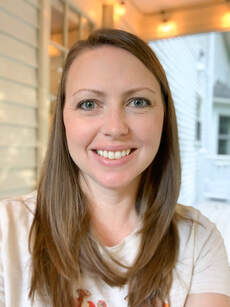 by Becky Chappell Peninsula Fellows Assistant Director I am not Gen Z. I grew up in the era of VHS tapes, Beanie Babies, Boy Meets World, Skip-It, and mix-tapes. Yes, I’m a Millennial. And I absolutely loved growing up in the ‘90s. But as someone who works closely with Baby Boomers, Gen Xers, younger Millennials and the Gen Z generation, I have come to value the importance of researching and understanding generational differences. Why does this matter? Why should you care which generation you belong to, or the generations of your coworkers and friends? The generation in which we are born is one of the defining aspects of our cultural identity. When we understand our cultural identity, we can more thoroughly understand the person God created us to be. When we understand others’ cultural identities, we can more effectively interact with and love our neighbors as commanded by Jesus in Matthew 22. There is also beauty in diversity. Just as Paul explains the beauty of diverse spiritual gifts within the body of Christ in 1 Corinthians 12, so there is also beauty in generational diversity. Generational diversity gives opportunities for shared life wisdom, offering different viewpoints, problem-solving, and encouragement. When studying generational characteristics, it’s important to understand that these characteristics are generalizations. Every characteristic doesn’t universally apply to everyone in a specific generation. Take me for example. When studying generational characteristics, I actually relate better to the Gen X generation than I do Millennials, even though my birth year places me in the Millennial generation. Does that mean that I should just ignore all of the Millennial characteristics as if they won't apply to me? By no means! Rather, we need to use wise discernment when studying our generations and the generations of those around us. This also means we shouldn't make blanket judgments about someone based on their generation; rather, use your understanding of their generational characteristics as a conversational starting point. (See below for recommended resources.) With that being said, studying generational characteristics has made me even more excited to work with recent college graduates from the Gen Z generation through the Peninsula Fellows program. Why? Because this generation is an open field waiting to be planted with the seeds of the Gospel, and our Gen Z Fellows are in strategic positions to do this important work among their peers. As the Assistant Director of Peninsula Fellows, I have the unique opportunity to help our Fellows prepare for this work during their time in our program. Our Fellows learn deep theological truths and how to apply them, practice culture care, serve the local community and church, get valuable hands-on experience of living out their faith in their workplaces during their paid internships, and engage in discipleship relationships with those both younger and older than themselves. I eagerly await the work God will do in and through the Gen Z generation to bring about His Kingdom for His glory. Recommended Resources:
We sat down with Mark Shaw, Director of Via Institute, to talk about the newly-formed Via Institute.
What is Via Institute? Via is a new Peninsula Community Chapel (PCC) project to provide seminary-level training to our congregation. Via Institute partners with both Peninsula Fellows and Reformed Theological Seminary (RTS) in D.C. to provide courses in the Bible, Christian history, calling, and career and cultural engagement to equip both Fellows and congregants to know His word on a deeper level and be able to engage our culture more effectively. These Via courses can be audited or taken for credit. One can take a single class or both that are on offer. After finishing our four residential courses, one can pursue a degree at RTS at a great discount. For those interested in getting a master's from RTS, Via can save you thousands off of the normal tuition. Why is Via helpful for Fellows? Peninsula Fellows is committed to training its young men and women in a rounded way. They work in a professional part-time job, they volunteer at PCC and in the community, but they also develop a Christian mind by taking graduate-level courses. The experience of studying God's word in a multi-generational setting is also a benefit for Fellows and congregants alike. Developing the mind of Christ is one of the most important things that a young person can do, and Via Institute helps them do that. What are you studying now? In the Fall semester, Via offered two courses. The 4:30 PM class is Missional Church, a tour of Christianity worldwide and how the Christian movement has grown and expanded over the 2000 years since its beginning. The 6:30 PM class is Missional God, a survey of the big story of the Bible in six dramatic acts. This course enables you to see the flow of the Biblical story and put your individual study times in the Word into context. We have about 14 students in the two classes with a nice mix of ages and backgrounds. I have been having a blast teaching them. What will you be studying next semester? How do you register for classes? Starting January 20, 2022, two new courses will be offered. Each course is 15 weeks in length. Missional Lifestyle looks at the concept of calling and how to integrate your calling with career and family. The second course is Missional Engagement. This course prepares you to understand where our culture is going and to speak truth into the culture. We particularly explore the role of art and beauty to disarm a resistant modern culture and create a desire for Christ and his truth. To register, write an email to me at [email protected] for more details. The cost for each course is $40 to audit and $80 for seminary credit plus textbooks. We would love to have you join us in January! 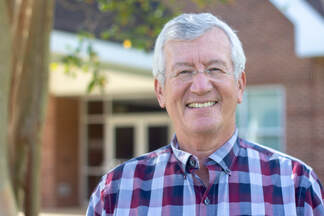 by Mark Shaw Peninsula Fellows Director What has Peninsula Fellows got to do with the Swiss Alps? At first glance, not a lot. Our locality is a little short on snow-covered mountains and cute mountain chalets. But don't be fooled by appearances. Peninsula Fellows is linked by history to the towering peaks of that land of Saint Bernards and ski resorts. In his book, To Think Christianly: A History of L'Abri, Regent College, and the Christian Study Center Movement Charles Cotherman draws the family tree of the Fellows movement. At the top of the tree is L'Abri, the legendary Swiss-based ministry of Francis and Edith Schaeffer that transformed so many young people in the 1960s and 70s (and still going on today). The idea of L'Abri ("The Shelter") was to provide a safe place for college-age students (and others) to ask tough but honest questions in the context of a learning community that fed them, loved them and prayed for them. Regent College in Vancouver was founded with some of those same elements, as was the Christian Study Center movement. And one of the recent movements inspired by L'Abri? The Fellows Initiative of which Peninsula Fellows is a part. When John Yates founded the Fellows in Falls Church, VA, in the 1990s, he drew inspiration from all the above sources. So what? One may ask. We are a long way from the Alps, and it's been a long time since the 1970s. This alpine link is vital for two reasons. First, L'Abri, according to Cotherman, is part of the fellows' DNA. This past year its was such great fun to watch Janie Anderson, Rachel Palekas, Allan Samuels, Kathryn Lott, and Kayla Reesey learn together and live together in community with host families. They also practiced the spiritual disciplines of word and prayer together as a group and as part of PCC. The spirit of L'Abri is alive and well and living in Yorktown. Secondly, and maybe more importantly, Peninsula Fellows is learning to practice a crucial spiritual discipline of the Schaeffers and L'Abri-- persistent, submissive, corporate prayer. In his book, Cotherman identifies the central prayer that shaped L'Abri. It was prayed daily by hundreds. "Lord, bring us the people of your choice." As we gear up for year two of Peninsula Fellows and are still recruiting recent graduates for the new cohort, this mountain top prayer must become our own. "Lord, for Peninsula Fellows, bring us the people of your choice."
Would you consider spending five minutes a day during June praying that prayer daily with us and for us? Why? Because it will grow your faith even as it will grow mine. Because it will transform Peninsula Fellows in the year ahead. Because, to a watching world, it will bring more glory and fame to our God, the faithful, caring, almighty God who is there for his people, whether on the tidewater of Virginia or in the Alps of Switzerland. 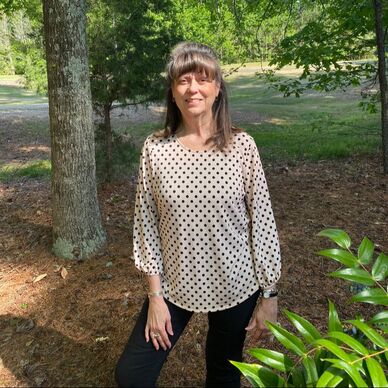 by Robin Cumpston Peninsula Fellows Leadership Team Member Special Events Coordinator I became a “quasi” member of the Fellows leadership team when Mark Shaw, our director, asked if I’d consider heading up the Kick-off and Graduation banquets. I say “quasi” member because my role is basically food service; nothing as important as mentoring or being a host family. Now, don’t get me wrong, food is something a lot of Christians consider an integral part of fellowship. But my role can be more about elbow grease than brain matter – especially when the guest list has 75 to 100 people. Our leadership team is composed of genuine born leaders but I consider myself a “worker bee.” Even so, I joined the Fellows team asking myself if I could really be a part of the team, or would I just do my part whenever the time comes. Here’s my short story how that unspoken question was answered. It was the first or second leadership team meeting I’d attended, and as the team discussed what the fellows program would entail, I felt a nudging about someone that might be a good candidate for the program. I have a lot of ideas. Usually, dark or fearful thoughts crowd them and they get filed away into the section of the brain that collects cobwebs. First dark thought: Who am I to suggest a candidate? I’m just the food service personnel! The nudging: What if the Lord is really in this? Dark thoughts: This team is full of people much more qualified, much more spiritual than me who should be identifying candidates. Maybe I should just keep my thoughts to myself. The nudging: This someone is near and dear to you. Dark thought: Maybe it’s a mistake. And on and on the battle went until after the meeting I had just enough nerve to ask the director, “What about Kathryn Lott?” I think I must have spilled out several reasons why I thought she’d be perfect. The director said, yes, why don’t YOU ask her and tell her what YOU know about the program. Dark thoughts: Me? You’re kidding, right. What do I know – I’m the food service personnel! As the days rolled on we (this includes my husband, who, by default and on a regular basis, gets to suffer through my fearful turmoils) needed to get in touch with Kathryn to see if she was interested – time was fleeting. Dark thoughts: What if it’s a bad idea? The nudging: What if it’s the right time in Kathryn’s life for something like this? Dark thoughts: What if she leaves her job all the way over in South Dakota and it turns out to be a terrible idea? She’ll have nothing and it will be all my fault. The nudging: What if it equips her and gives her new ideas and good things? We prayed and asked for direction and eventually, I stopped agonizing. And as we presented the opportunity to Kathryn, there was peace, there was ownership, investment, and a little more belonging than just being the food service personnel. Kathryn said that she would investigate, pray and consider it. So we prayed too that the Lord would lead her into the decision He desired what was best for her. After all – the decision wasn’t mine, it belonged to God and to Kathryn. It’s sort of like presenting the gospel to someone and then praying and trusting the Spirit to work. We were overjoyed when Kathryn told us her decision was “yes.” We’d get a chance to see her again, help if needed, and know that we’d followed through (albeit with a lot of questioning) to help a young lady in the next chapter of her life. I count it as one of the defining moments of last year. A chance to help grow a program, grow a person, and grow in faith. I beam whenever I see the Fellows at Peninsula Community Chapel or hear a report about how they are doing. Though the Coronavirus has derailed the prospects of a graduation banquet this year, the plans for a creative, virtual celebration are underway. While I know they are busy with lots of studying, serving, working, and growing – I think of all the ways Kathryn and the fellows are preparing to “Transform the marketplace by connecting their work to the eternal work of God.” Yep, I’m the food service personnel on the team and I had the privilege of knowing and inviting a perfect candidate to consider the first Peninsula Fellows program and make our first year a wonderful success! Perhaps the Lord is leading you to tell a young 20-something college graduate about the Peninsula Fellows program? YOU might just be the best source for the next class of Peninsula Fellows! 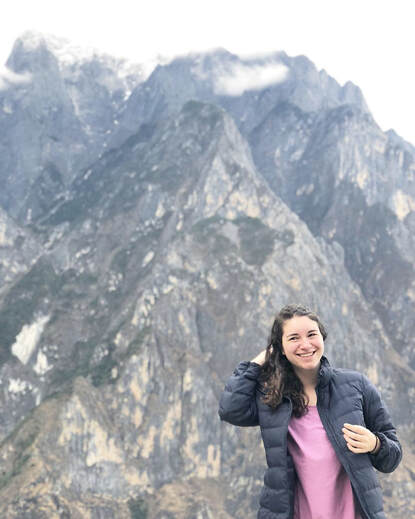 by Janie Anderson In 2020, we live in a world that is, thankfully, more open than ever to having honest discussions about things like race, gender, power, privilege, and bias. This is true in both the wider cultural context and within the culture of the church. One divider that is not as frequently addressed is the dichotomy in our society between extroversion and introversion. Although not as pervasive as systematic discrimination, this bias is still impactful. Susan Cain is one of the foremost researchers on the psychology of introverted and extroverted personalities. She claims that Western cultures live in what she calls the “Extrovert Ideal,” and that it is a symptom of a deep-seated Western discomfort with sitting in the quiet. In her book, Quiet: The Power of Introverts in a World That Can’t Stop Talking, she writes, “If you’re an introvert, you also know that the bias against quiet can cause deep psychic pain. As a child you might have overheard your parents apologize for your shyness. Or at school you might have been prodded to come ‘out of your shell’ –that noxious expression which fails to appreciate that some animals naturally carry shelter everywhere they go, and some humans are just the same.” With all of this in mind, how do we proceed as a church, a parachurch organization, or as a Christian in the workplace in a way that is inclusive of everyone’s gifts? I am thankful to have seen a vision for this in many ways in my seven months with the Peninsula Fellows Program. Peninsula Fellows is a younger and smaller program than many of its sister programs, and this year our inaugural class consisted of five people. I tend to thrive more in smaller, more intimate environments, so having a small class of other comrades is ideal for me. I usually prefer a smaller group where I feel like I can get to know everyone well rather than a larger group where I may not have a real relationship with each individual. People who are naturally introverted may not speak up as frequently in large group discussions, so I have felt more comfort than I otherwise might have sharing my thoughts in class discussions, roundtable dinners, and in our small group. I love deeper one-on-one conversations, so I thrive in meetings with my mentor, leading a small group of high school girls, having dinner with my host family, and getting to know the other fellows personally. A previous boss told me that while I’m perfectly capable of addressing crowds and acting outgoing when needed, he valued me as a leader for the qualities that I bring as an introvert: being comfortable going deep with others, and making people feel known and loved as individuals. I’ve felt similarly appreciated in the Peninsula Fellows, and the fact that the other four fellows also call themselves introverts has allowed me to notice and appreciate the same qualities in them. That is not to say that I haven’t felt challenged in the program. I think as believers we are called to a healthy level of being stretched so that we can grow more into the people Christ intends us to be. I’ve grown a lot the past few months in my ability to network and navigate the workplace, gained comfort in situations where I might meet many new people at once, and managed a busier schedule where I am not always able to withdraw to recharge when I might want. But I know that I am being grown and pointed toward Christ in new circumstances. In 1 Corinthians, Paul wrote that those who believe in Jesus are meant to be like many members of the same body to describe the way diversity within the church is beautiful and intentional: “If the whole body were an eye, where would be the sense of hearing? If the whole body were an ear, where would be the sense of smell? But as it is, God arranged the members in the body, each one of them, as he chose. If all were a single member, where would the body be? As it is, there are many parts, yet one body” (1 Cor 12:17-20). This shows us that God purposes different people for different jobs within the church family by gifting them with different abilities. Not everyone is created to do or be all things. Christians are lucky to have examples of strong believers who worked for God by being quiet, contemplative, and gentle (Moses, Esther, Jesus), as well as believers who performed God’s will by being enthusiastic, sociable, and bold (Paul, Mary of Bethany, Jesus). We function more fully and come closer to realizing the vision of Christian community when we seek to cherish the ways that others are like God in ways we are not, and appreciate the skills that all personality types have been gifted. * * * If you are an extrovert looking for ways to love your introverted friend, neighbor, or coworker well, here are some tips:
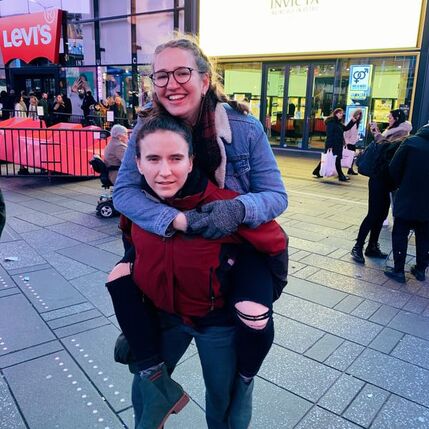 by Rachel Palekas One of our classes this semester is a type of apologetics class, or as we’re calling it, “missional engagement.” The main goal of this class is to identify ways that we’ll be interacting with some of the hard questions the ‘secular world’ will be asking us. One of the ways we started to do this was by taking a trip to New York City to explore the Museum of Modern Art and the Metropolitan, trying to find the Lord’s beauty in artists who probably don’t know him. We also looked for ways that art reflects our Creator who calls us to continue His work of creating. One of my favorite paintings of all time is the incredibly famous painting Starry Night by Vincent Van Gogh. I never really knew why I loved it so much until I was reading Culture Care: Reconnecting with Beauty for Our Common Life for class about how art and beauty are in our calling to care for creation. In it, Mako Fujimora describes why and how Van Gogh created that famous image: “Vincent painted this ‘superior and changed condition of existence’ [aka the church connecting the earth to the heavens] as already here--but not yet fully so. He developed a visual diction that serves as a bridge between our current condition and a future transformed” (Fujimora 76). If you look at Starry Night, the piece holding the entire painting together is the church--smack dab in the middle, with the lights off (which implies the ‘not yet’ part of the Kingdom of God), reaching into the beauty of the stars and heavens. In John, as Jesus was being tried before he was crucified, he was very clear in saying that his kingdom is not of this world (John 18:36) and that is displayed so beautifully in Starry Night. I’ve always felt so drawn to this painting, mostly because of the swoops and sways of the stars reminding me of something so much bigger than myself. But getting to see it in person after learning about the background of Van Gogh (who decided not to be a pastor because he felt he could love people better through art than through the pulpit) and the way he intentionally designed this painting led me to be in awe not only of the painting, but of the Lord, who gives His children the gifts and abilities to create beauty to point back to His kingdom that already exists, but is not yet fully realized. by Allen Samuels I will be completely honest from the beginning. When I heard that I’d be getting a mentor as part of the Peninsula Fellows program, my first thoughts were “I don’t need a mentor! What’re they going to do for me?” In my defense, I’d just gotten out of college, I liked being independent, and the last time I’d signed up for a mentorship program they didn’t do a thing for me. Even though I was starting to realize that God was calling me to change and become the person he had called me to be, I was still hesitant about opening myself up to others. I honestly thought that it would be a waste of my time. Fortunately, God has a habit of proving us wrong. When Peter and I first met, we were two weeks into the program and I’d already experienced God’s work in transforming my life during the first week-long retreat. All the same, I was still nervous about meeting this stranger. What would he ask me? What would I talk about? Apparently, my life story. Over the course of a delicious Asian meal and the car rides before and after, I laid out to Peter the good, the bad, and the ugly. I’d known him for less than an hour. If you were expecting a happy ending to this, you won’t be disappointed. Peter took what he’d been handed and went at his job with gusto. By the end of our first meeting, I knew I had made not only a new friend, but a brother in Christ. Since then, he has been amazing. We meet at least once a week, and I can give him a call or text whenever anything comes up. Ever since I first felt a calling to participate in Peninsula Fellows, I have experienced one blessing after another. I won’t lie and say that everything these past few months have been perfect, but I can always count on getting help and advice from my mentor, and for that I’m truly grateful. 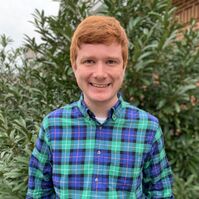 About the Author Allen is a Graduate of the University of South Florida with a Bachelors in Technical Writing. He is working this year at Genex Systems as a proposal writer. In his free time, Allen enjoys enjoying nature and reading books. by Kathryn Lott The topic of my blog post came to me while thinking about a much-needed prompt question. The question was, while on Christmas break what did you reflect on about the Fellows program? In all honesty I did not reflect much on the Fellows program while on break because I was far too busy reflecting on now badly I react to my mother during the holidays. However, upon reading the prompt question I began to think about what I have learned during the Fellows program. My findings were not particularly flattering. Being a Fellow has shown me how easily I deceive myself into thinking I’m a pretty nice person, as long as I’m not asked to fill up most of my time or have my plans disrupted. Basically, as long as I don’t have to do anything I don’t really want to, I am a peach (a peach, of course, being something delightful in its own right). That is a terribly dangerous mind set to have as a follower of Jesus and I am certain that is why He has me in the Fellows program. Being in the Peninsula Fellows program has been the Father’s gentle way of growing me by confronting my unwilling attitudes. It’s like He asks me everyday, “You say you want to lay down your life for me, but what if I ask you to do that by adding another event to your week or another person who requires your time and energy?” The extent of my “time selfishness” has been a real slap in the face, but I know I want to be more like the Son, so I am very grateful that the reproof has come in the form of the Fellowship Program. I hope by having this concentrated time of refining, I will respond with more grace and patience in the future. 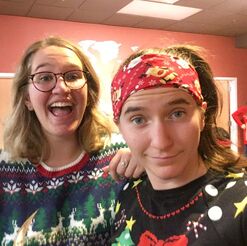 About the Author Kathryn is a graduate of Central Christian College of McPherson Kansas. She has worked in construction for the last 2 years and hopes to use those skills in a mission capacity either in the U.S or over seas. Kathryn’s interests include but are not limited to Nerf guns, stained glass, and board games. She lives with Dwight and Jenny Kinter who are her host family and also life-long family friends. |
|
Peninsula Fellows Program 4209 Big Bethel Road Yorktown, VA 23693 |
© Peninsula Fellows Program, a ministry of Peninsula Community Chapel. All Rights Reserved.


 RSS Feed
RSS Feed
